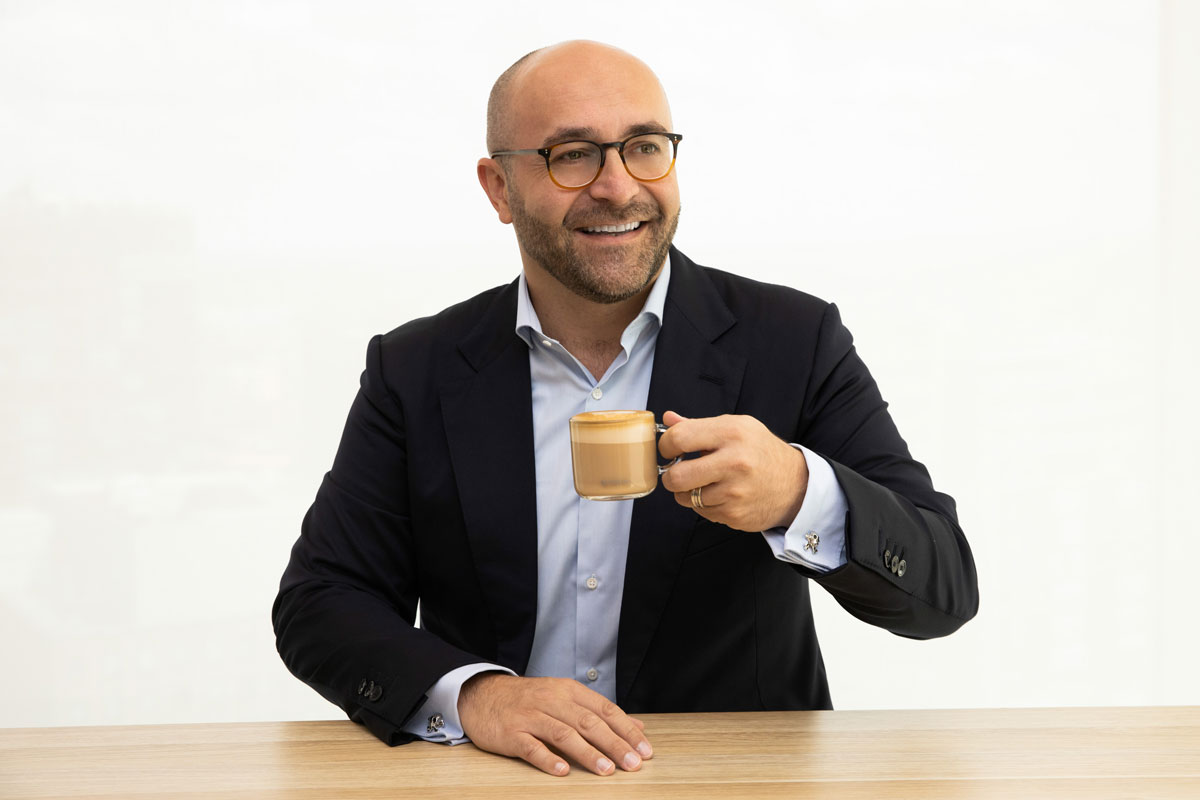There’s a quiet confidence in a man who can down seven to 10 cups of coffee a day and still hold a coherent conversation about gaming the product life cycle.
“The last one is probably quite late in the evening. Caffeine is not really a problem for me,” smiles Jean-Marc Dragoli.
As the Business Executive Officer for Nespresso Oceania, Jean-Marc has just weathered one of the most tumultuous periods in the company’s 35-year history. Lofty business plans rapidly shifted towards reinvention while global talks with senior management suddenly turned to shelving sales targets in favour of job security and the safety of its 13,900 employees during a pandemic.
And then there’s the seemingly unwinnable task of convincing the world’s coffee snobs that a pod has a place in the realm of artisan coffee. One would assume it’s probably why Jean-Marc’s daily consumption of liquid gold is so daunting.
“My Italian background has something to do with it. I’ve been educated with coffee.”
Well, close enough.
Sowing the beans of resurrection
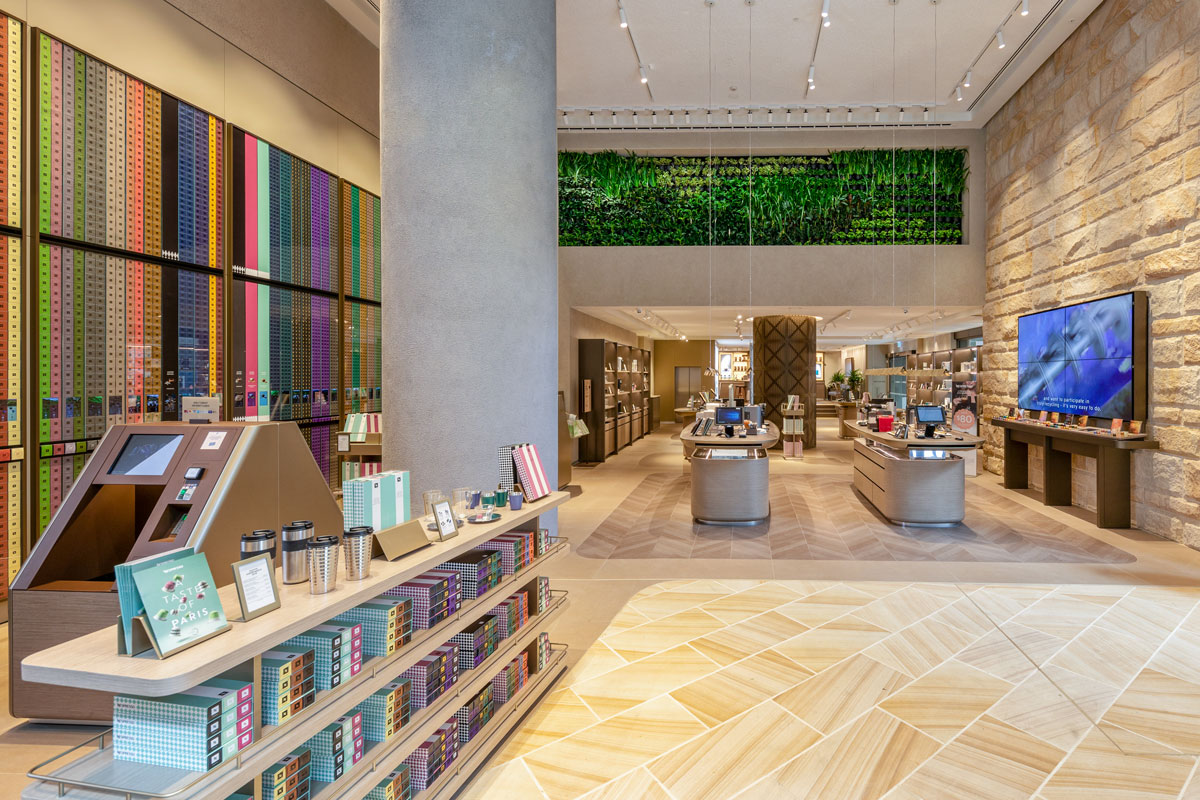
In its illustrious market streak spanning over three decades, Nespresso has seen plenty of peaks and troughs in coffee’s evolving landscape. Its foundation came as a groundbreaking invention from Nestlé employee Eric Favre, who devised the world’s first single-serve coffee container back in 1976. The Swiss food giant patented the technology with a simple goal to bring espresso to the home.
After a decade of trial and error, the very first official Nespresso machine was launched in 1986. It would also follow on with an extensive rebranding exercise, which would refocus its sights on the luxury market. The hardware was refined and the name soon came with its own social status. Drinking Nespresso had become a sophisticated lifestyle choice rather than one of mere convenience for coffee lovers.
The strategy worked and by the early 2000s, Nespresso’s growth and revenue figures were soaring as the company muscled market share from roast and ground products in their hometown of Switzerland, tea from the Chinese market and instant blend from the British market. American actor George Clooney would also be enlisted as the high-profile face for Nespresso’s more memorable advertisements where he often goes unnoticed by women in favour of another smooth and rich body profile in the Nespresso store.
As the product matured though, serious challenges began to arise. Competitors spotted a loophole and started producing their own coffee pods that could be used in Nespresso’s machines. As their patents from the 90s began to expire in 2012, the final ruling went in favour of the competition and Nespresso would no longer be able to retain a stronghold on the lucrative market it had created for itself.
Today, high-end coffee products such as Geisha beans can be enjoyed in specialty cafes sprouting up across major cities. The coffee can cost anywhere from US$18 a cup in New York to US$68 a cup in Dubai. A pound can set customers back more than US$600. This trend follows the growing consumer demand for ultra-premium, low volume beans that require specific cultivation and harvesting techniques to achieve a unique flavour profile.
At the other end of the spectrum are the cheaper rival pods, which can often be found littering supermarket shelves mimicking Nespresso’s polished aesthetic.
And stuck in the middle? Nespresso.
“Competition is good. It’s good for consumers and companies because you reinvent yourself and fight to survive.”
Jean-Paul Gaillard, who was Nespresso’s former CEO and credited for its successful luxury rebranding in the late 80s, has expressed in the past that he thinks Nespresso’s golden age has passed.
“In the major markets, Nespresso’s getting close to saturation point, and there’s lots of competition. The good years are over.”
One could argue that Jean-Paul was simply biased as he later started his own rival coffee pod company – a business, which he would subsequently shut down in 2017 due to his own market observation.
“Everybody has started making capsules,” he told Le Temps on his decision to close up shop. “The business doesn’t make anything anymore.”
Jean-Paul’s opinion can, however, be challenged if a recent industry report is considered. ‘Coffee Pods – Global Market Trajectory & Analytics’ estimated that during the COVID-19 crisis of 2020, the global coffee pod market was worth US$35.3 billion. More specifically, it projected that same market to be worth a staggering US$51.3 billion by 2027 alongside a compound annual growth rate of 5.5 per cent between 2020 and 2027.
It’s interesting then that Jean-Marc and a new global CEO in Guillaume Le Cunff would be reassigned from Nestlé at the fall of 2019 to steer what some would consider an unprofitable venture.
Both Jean-Marc and Guillaume are outspoken advocates of coffee sustainability, have roughly two decades of experience under their belts at the parent company, and carry grand ambitions for the next phase of Nespresso.
They’re certainly no benchwarmers and unlike most business stories today, this isn’t some rags to riches cliche about a college dropout creating an app to become a millionaire. This is a story about brand redemption, resurrection and reinvention. And at the forefront of it is Jean-Marc who wants to prove that this old dog still has legs in the Oceania market.
Taking on coffee’s toughest critics
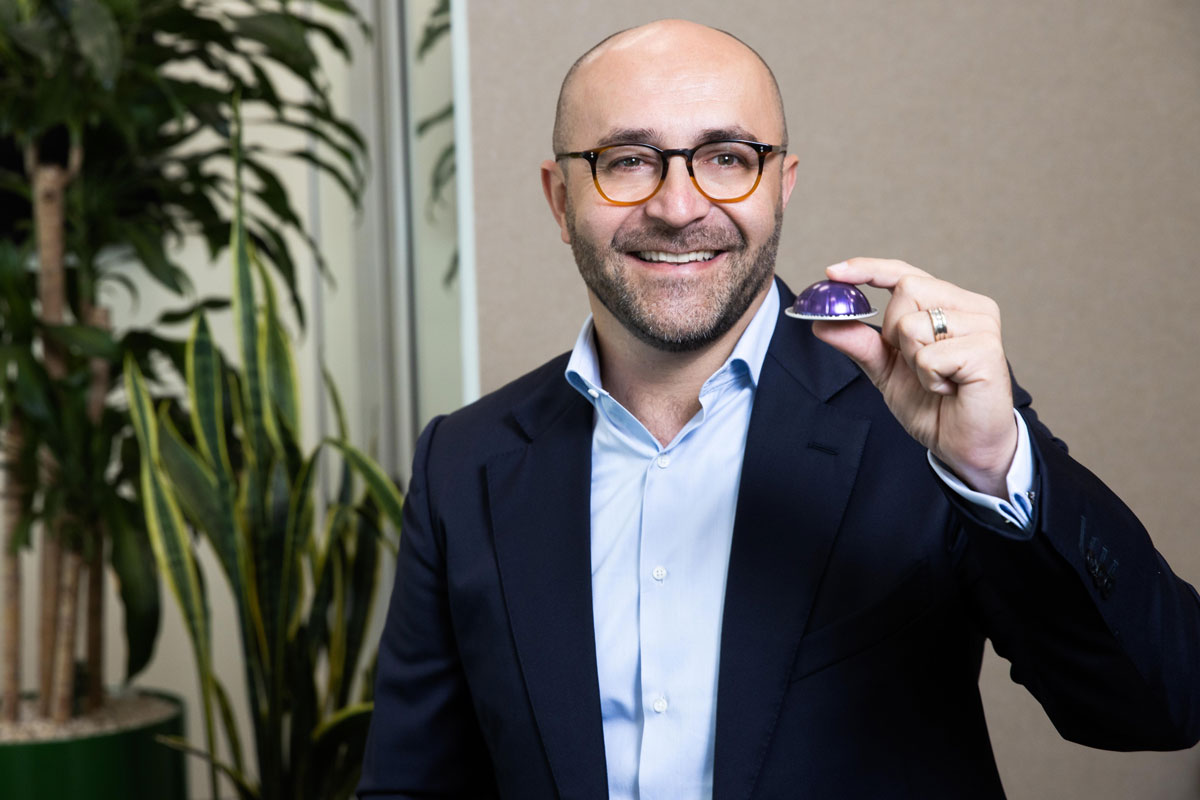
Jean-Marc speaks with a calmness and restraint that is oddly comforting. It might have something to do with the fact that he can communicate in six different languages and is good with people. Or it could be the fact that he could moonlight as Hollywood actor Stanley Tucci who shares a similar on-screen demeanour. He also rebukes the notion that Nespresso is dead.
“I’ll give you my perspective. First of all, this is a product we invented. We invented the category. We didn’t know at that time it would become what it is today. Innovation and sustainability are at the heart of everything we do. Can we still innovate and do new things? We can.”
Jean-Marc explains that coffee and wine share similar profiles in that there are over 900 aromas that are developed in the process of roasting and extracting coffee. This means there are more than enough avenues for Nespresso to explore.
“I strongly believe that coffee is a category that is very dynamic. And I strongly believe that we are just at the beginning of what we can do with coffee,” he says.
The current market’s rapid shift towards top-end produce means that quality is clearly in Jean-Marc’s crosshairs if he’s to succeed in his assigned region. This is especially the case in cafe-rich cultures like those found in Australia – the country where coffee giant Starbucks was famously sent packing after it failed to penetrate local discerning tastes.
“There is a sophisticated culture here. The way it’s drunk in this country, there’s no space for bad coffee.”
The Nespresso renaissance will be a monumental task, but it helps that the company can leverage an existing local retail network that was established back in the 90s. Nespresso owns stores across Australia and New Zealand as well as their e-business division handling online sales. Jean-Marc himself is also a force to keep watch of, having been credited for delivering double digit top-line growth over consecutive years during his last tenure in Brazil.
“We’re trying to give the experience and availability of a super high-quality coffee to Australian consumers at home and in store,” he says. “We will continue investing in that and in the development and innovation of new coffees. This is what we do – we reinvent ourselves all the time.”
In 2020, the pandemic gave Nespresso its best chance for reinvention. Home coffee consumption went up while cafes, restaurants and hotels were forced to close their doors under strict lockdowns. This allowed people to shift their perceptions and invest in better coffee machines, according to Jean-Marc.
“They want to live the coffee shop experience at home and this is a major change of 2020, a change that will remain. This is not something that will just be for a couple of months.
“People now understand that you can have a fantastic, high-quality cup of coffee made just by pressing the button. And indeed, it’s who we are and what we brought into the category.”
Coffee critics can also expect another familiar face returning to the Nespresso realm – George Clooney. What began as a brand ambassador role responsible for introducing Nespresso to the masses has evolved into a full membership on the company’s sustainability executive committee.
Jean-Marc explains that the 59-year-old actor’s appointment into the company’s worldlier pursuits isn’t just about making witty advertisements anymore, but ensuring the business does the right thing when it comes to sustainability. With George’s wife, Amal, also professionally versed in international law and human rights, this initiative’s move in the right direction is looking promising.
And finally, there’s the million-dollar question of whether a coffee pod has any place in being positioned as a luxury product. Jean-Marc insists the focus shouldn’t be just on the pod itself, but the Nespresso experience as a whole.
“Consumers want to have something different. When you go into the supermarket coffee aisle, you see a lot of colours and brands; you don’t know what to buy and what experience you’re getting,” he says.
“When you go into a Nespresso store, you can talk to one of the 400 coffee specialists we’ve got in Australia that will guide you through our coffee menu. They will understand exactly what you want, how you like it, the aroma notes you’re after. They guide you through our world.
“You will get a coffee tasting, learn recipes, learn how to get the most out of your machine, and that’s what people want.”
Additionally, he says that a growing number of consumers are now wanting to understand what’s happening in the countries where their coffee is grown, and he is more than happy to oblige.
“When we source coffee from Colombia, Brazil, Mexico or India, they want to understand what we are doing and how we are doing it. It’s very difficult when you’re alone in front of a supermarket shelf.”
It’s safe to say that Nespresso won’t be disappearing anytime soon. Investment in capacity and technology continues to be poured into their three factories in Switzerland, and the brand’s latest Vertuo line with barcoded extraction control – a fully automated feature that essentially negates the need for any manual user input – will play a big part.
There’s also ventures into new territory such as machines that can handle cold coffee recipes. Limited-edition vintage coffee will also continue to make its way into Nespresso’s pods in a bid to set itself apart from unwavering competition.
“Competition is good,” Jean-Marc stresses.
“It’s good for consumers and companies because you reinvent yourself and fight to survive.”
Finding sustainability in profitability
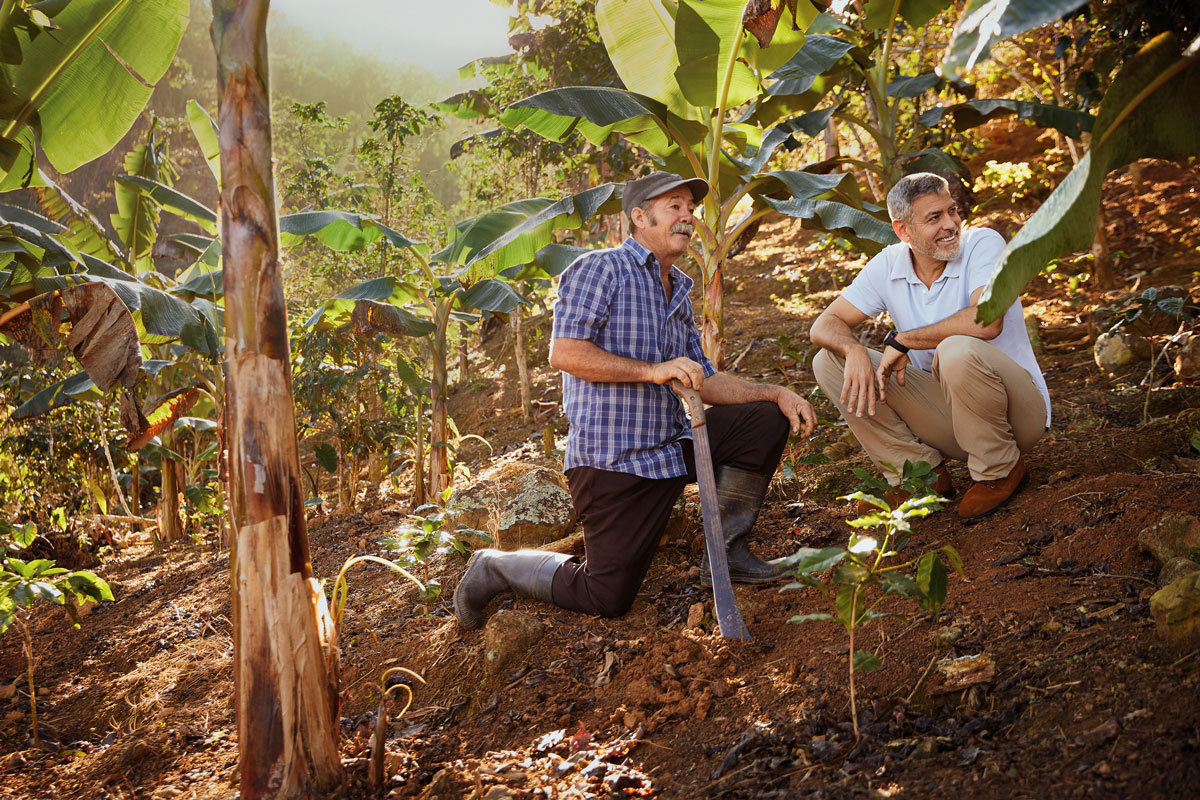
It’s no secret that Nespresso has seen some criticism in the past over the environmental impact of its pods, but despite the lingering perceptions, the new leadership between Guillaume and Jean-Marc seems adamant in proving it can truly embrace sustainability as a whole while hitting business targets.
“Because our products depend on the sourcing of coffee, if we don’t act today to ensure coffee farms can continue to produce coffee, there will be nothing else left,” Jean-Marc says.
“For us it’s a question of survival as well. We need to make sure the whole supply chain will continue if we want to be able to serve the perfect coffee to the consumer. And on top of that the consumer wants it as well.
“If you want to remain in business and your consumer tells you, ‘Look, I want to make sure that when I drink a cup of coffee, I become a force of good,’ we have to invest into that. There’s no way around.”
What began as part of the job to source quality coffee has now become a task of figuring out solutions to building resilience against climate change while ensuring consumers continue to buy into Nespresso because “it makes sense”.
Jean-Marc has witnessed the effects of climate change on the coffee industry first hand. The past 18 years have seen him stationed across Brazil, Mexico, the Middle East, Africa, Spain and other leading coffee-producing countries.
“The challenge is climate change which is onsite and you can see the result of your actions immediately on the coffee farmer,” he says. “We have more than 110,000 coffee farmers we’re working with and we’ve been working through our AAA Sustainable Quality program since 2003.
“When I was in Brazil and Mexico, I was able to visit the farmers and understand what their challenges were and the impact we’re having on them. We buy directly from them and pay a premium for the quality and because they adhere to our AAA program for producing coffee in a sustainable way. No-one is doing that. No-one is buying coffee directly with 110,000 coffee farmers from around the world, so I think that’s our major difference.”
Backing him in this corner is Guillaume who is touted as one of the company’s most outspoken advocates of sustainability. The global CEO has set a bold target in making the business 100 per cent carbon neutral by 2022.
“This is clearly what Guillaume and us employees believe in and this is what we’re going to do, Jean-Marc says. “It’s a heavy and difficult step but one he is committed to.”
This sustainability strategy in big business is seemingly receiving pressure from within as well. Nespresso now employs a growing number of the younger workforce who don’t just focus on what they sell and how they sell it, but the impact the business has on the greater population.
“If you want to continue attracting talented people into the company, sustainability should be a part of your company,” Jean-Marc says. “Many young people want to make sure they’re working for a company that cares. We put a lot of effort into making our cup of coffee a sustainable one.”
On the recycling front, where coffee pod companies have received the most criticism, Nespresso is beginning to take significant strides towards refining the process even though it isn’t where it wants to be just yet.
“My dream is that tomorrow, we can drop the capsule in the bin at home and it will be recycled,” Jean-Marc says. “That is already happening with some countries in Europe, but obviously you need to work with the council and authorities to ensure the infrastructure supports that kind of initiative.”
In the interim, the company has been expanding its 19,000 capsule collection points across the country, which includes their retail stores and florists alongside a bulk recycling program for offices and commercial spaces. Australia Post has also been enlisted to help with remote customers who can’t access Nespresso’s drop off locations.
“When customers place their order, they just tell us that they’d like an Australia Post satchel and then when we ship their coffee the satchel goes with it,” Jean-Marc explains. “They fill it with used capsules and drop it in the mailbox anywhere in Australia and those capsules will be recycled.”
More notably, Nespresso has partnered with Planet Ark in a bid to devise a national recycling scheme and solution for coffee capsules by the end of 2022.
“Today, our network is great. We’ve made fantastic progress and have continued to develop it by working on more collection points, but this is a never-ending process,” says Jean-Marc. “I think the best idea there is, is to make a consumer’s life easier.”
To be CEO, don’t plan to be CEO
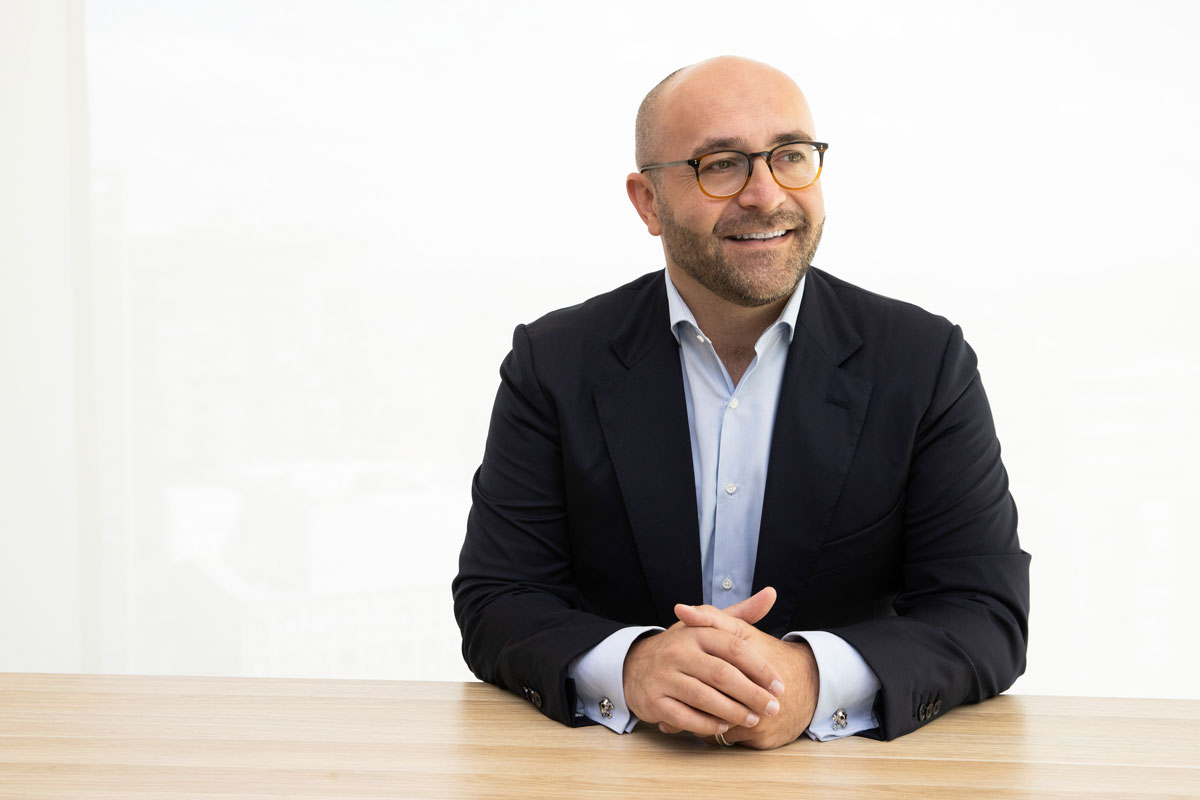
It’s a sentiment echoed by some of the world’s most successful CEOs, and it’s exactly how Jean-Marc ended up heading Nespresso’s Oceania region.
Did he ever think he’d one day be responsible for leading a major company?
“No. I come from a middle-class family.
“Most of my friends were working and left Italy after the war to get a better future. So I never thought about this. It’s not an objective and it’s still not an objective today.
“I’m just enjoying what I’m doing 100 per cent. I like what I do, and I like relating myself to the product I’m creating or selling. I’m connected with that and how the company is dealing with our operations with farmers and the whole sustainability area. I think if you’re happy with that, being the CEO or being the frontline worker for me would be exactly the same.”
Jean-Marc’s first love affair with coffee came as a child when he’d wake up to the smell of his father’s Bialetti Moka Pot on the stove before he left for work. It would fill the entire family home with the aroma of raw beans and a hint of chocolate. He didn’t know it at the time, but fate had seemingly chosen his path.
After a short stint in Switzerland’s prolific banking sector – “not because I like money in particular, but because I was surrounded by banks” – Jean-Marc realised he was the type of person that enjoyed creating things to test its tangibility more. He eventually joined the world’s largest food company known as the Nestlé Group and two decades on, he continues his mission under its umbrella.
It was a life-changing experience that allowed him to work on a truly global scale, spending 18 years stationed around the world.
“I lived in Mexico, Spain, Brazil and now Australia. My kids never lived in their own country. This is an experience we could not have had if I lived in Switzerland.”
More importantly it taught him how to solve problems on a global scale – a skill that reinforces his strongest stance on sustainability today.
“I met farmers in every single country in Latin America. Understanding what they do, why they do it,” Jean-Marc says. “They are working hard to give a better future to their children as well. What I’ve learnt in the past years around the world is, as a leader, what I can leave behind me is the impact you have on people.
“Results are obviously fundamental. You cannot be sitting here if you don’t have results, but you forget about this. If you do a good job with your staff and with your people, this is something they will remember. I still have old colleagues calling me back to tell me their new position. This is what fulfils me. It’s the impact that you have on people in this journey.”
His latest journey has brought him to Australia, a country that’s home to some of the best coffee shops in the world. Jean-Marc admits it’s very different to the places he’s lived before but if there’s one positive skill he can pick up locally, it’s another language to add to his six.
“I’m getting better at understanding the Australian lingo. Maybe not speaking, but understanding,” he laughs.
How to create a market-leading product

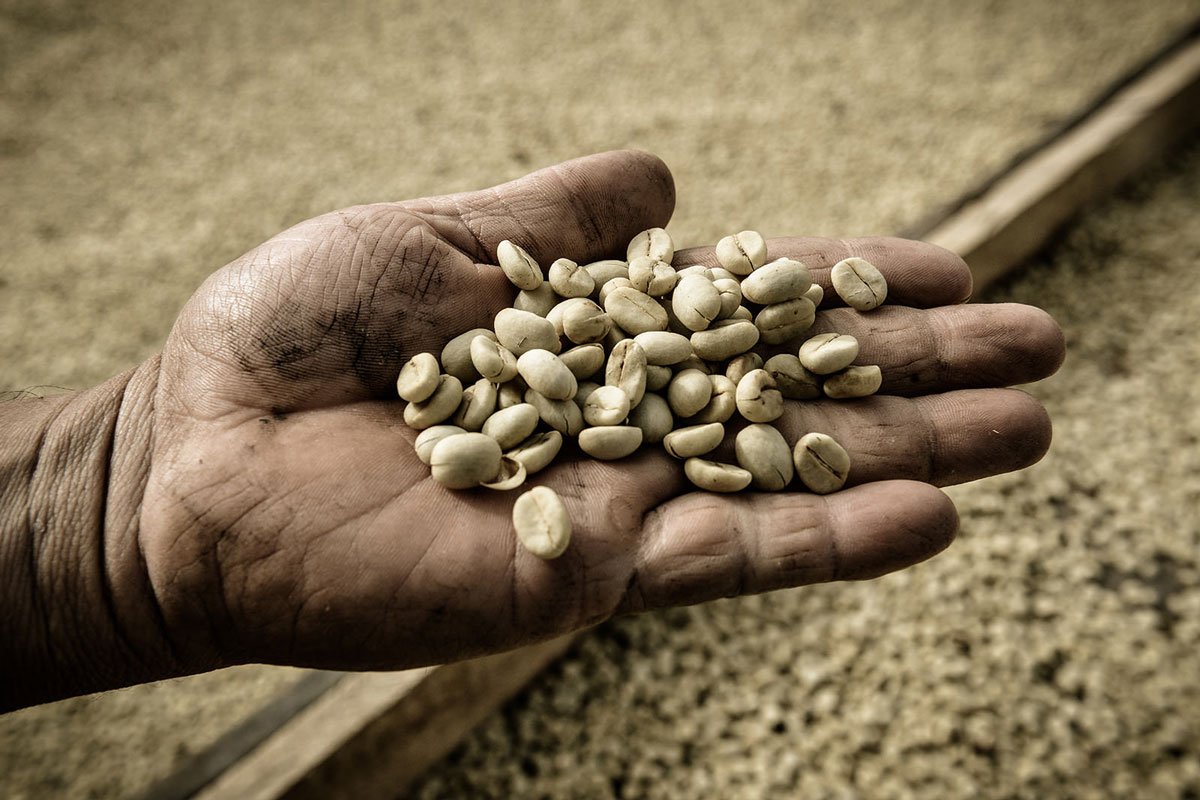
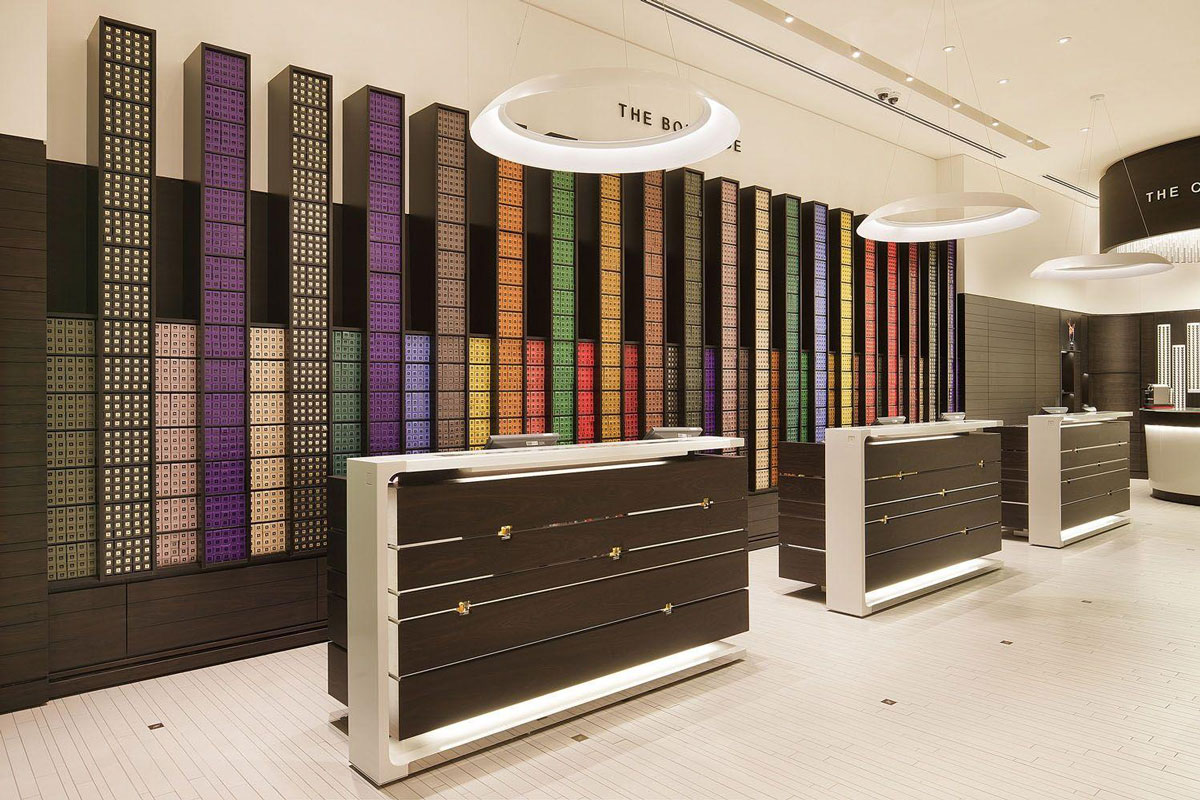
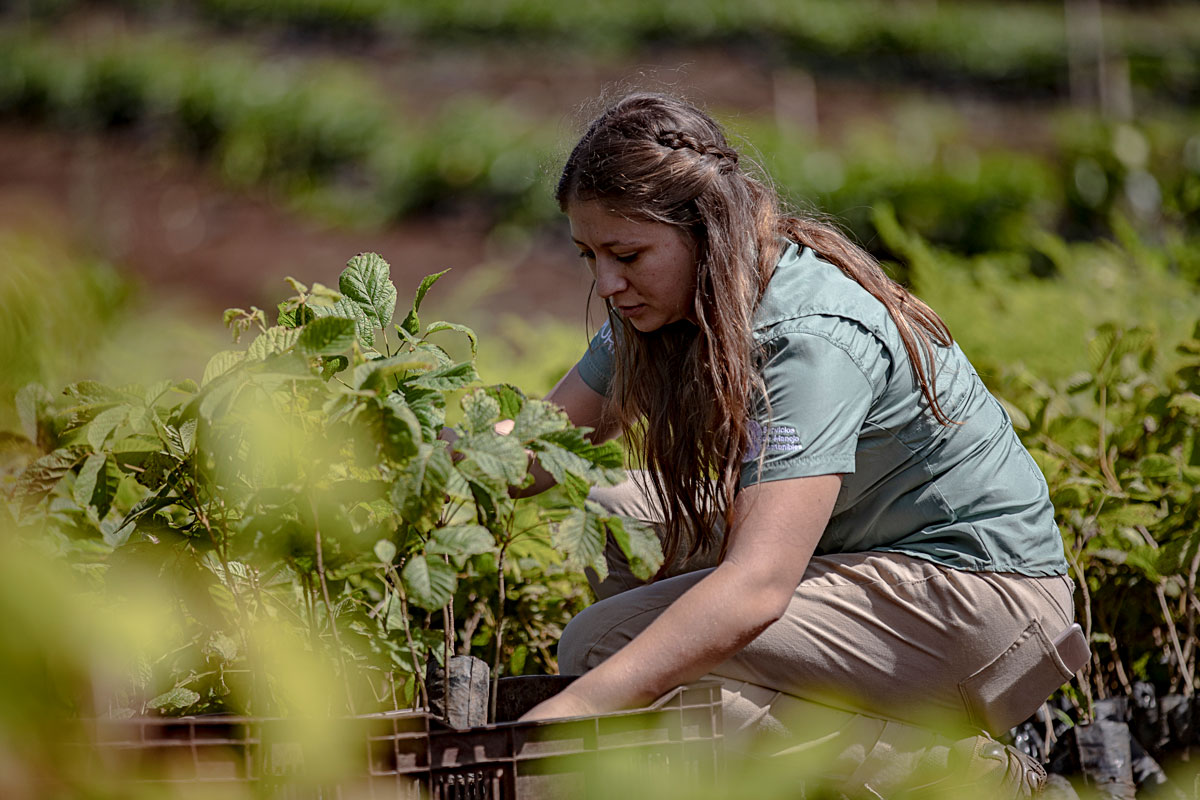
Nespresso is in a unique market position at the moment, so it’s only fitting to query Jean-Marc for some proven solutions for ensuring any product has the best chance of succeeding in the long-term.
- You need to be close to your consumer to understand what makes the difference for them – have direct feedback from your consumers, take it on yourself to call in and find a solution
- You can’t be arrogant. We are here because our consumers are buying us. In the end, what is important is the consumer, so make sure to answer all their expectations
- For businesses that don’t have a big operational budget, innovation is a big part, but customer and consumer experience and happiness is also important
- Deciding when to save or give up on a product on the market requires a view from different angles. You need to look at the trends and what’s relevant right now and in what region
- Once you’ve analysed what the specific consumer wants, you can adjust the product to suit
- Don’t be afraid to remove a product from the market – not because it isn’t good but because it’s no longer relevant
- When working in different countries, you are never in a fully comfortable position, so you need to understand the new country, the people and the culture to succeed
Read next: How much your coffee will cost after the pandemic lockdown

